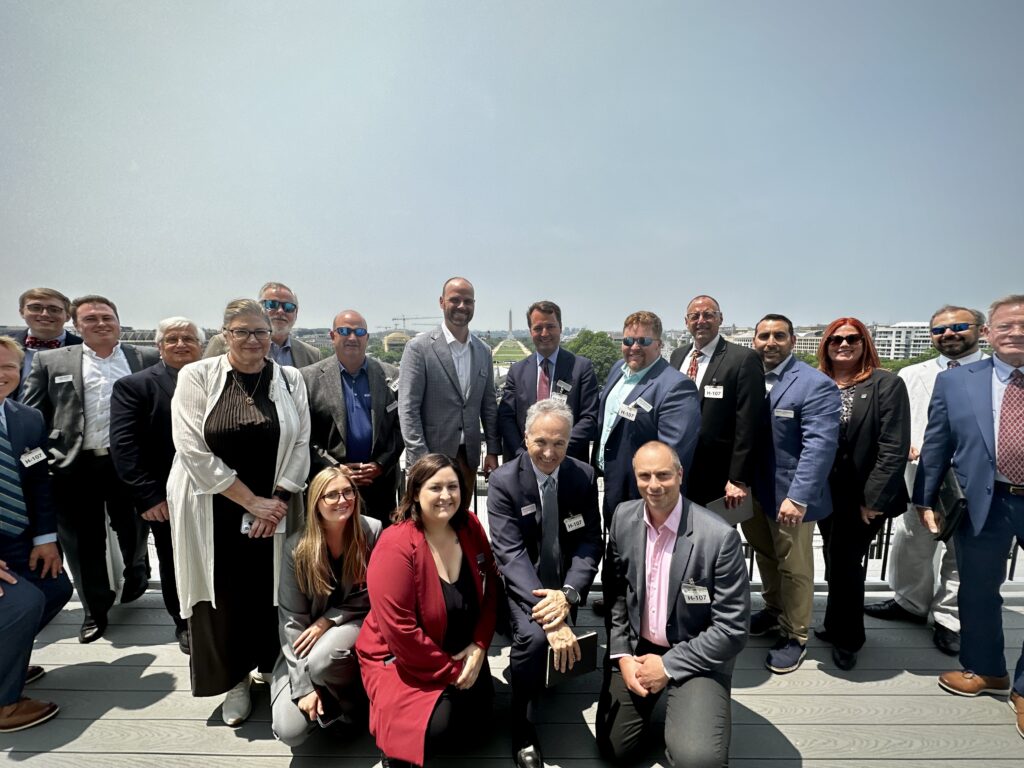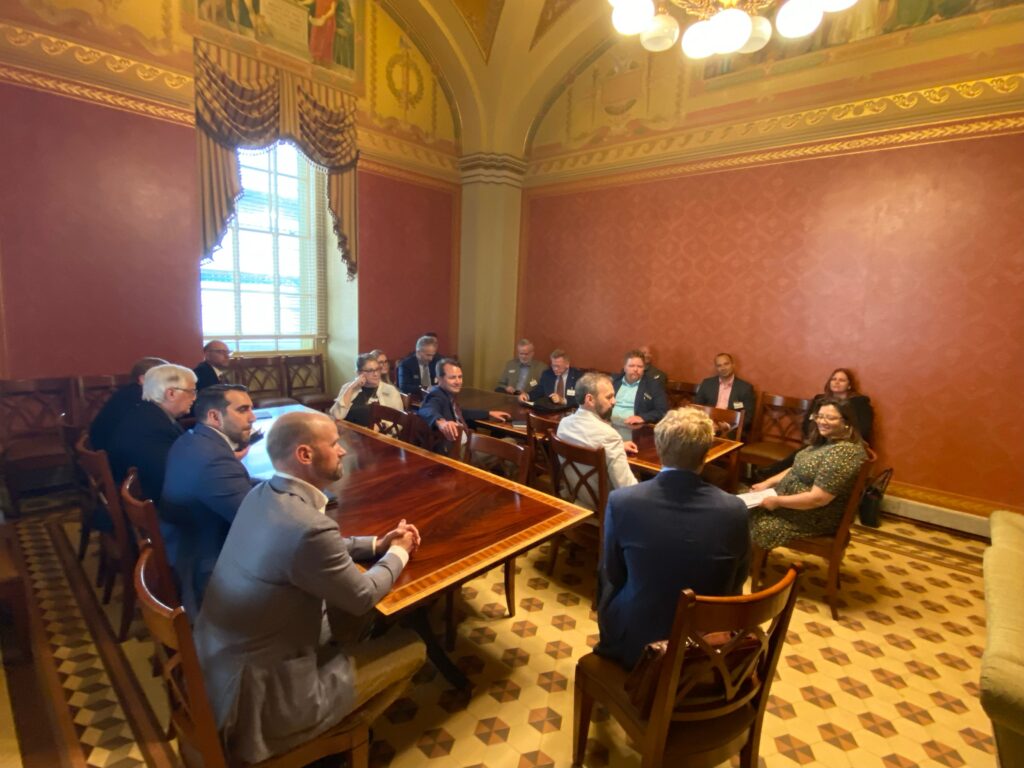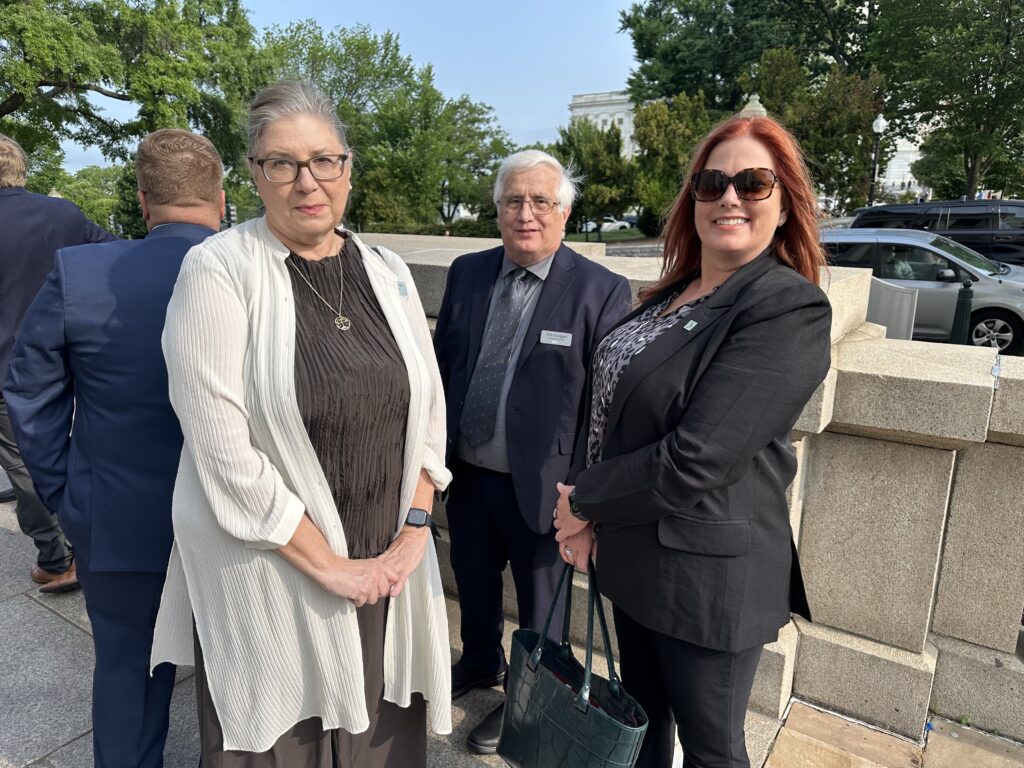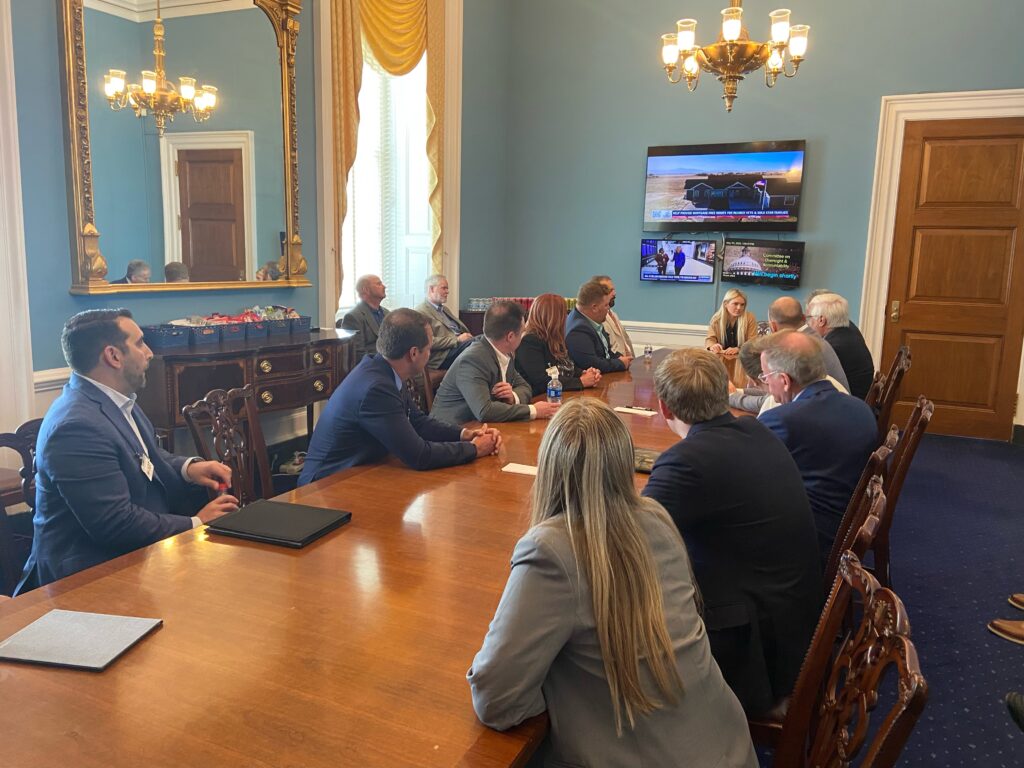2023 DC Fly-In
Legislation by Crisis, and the Lasting Impacts it has on Consumer Confidence

In late May, I had the opportunity to attend HFA’s DC Fly-in event. For those unfamiliar, this event offers an unparalleled opportunity to meet with policymakers and staff in Washington to discuss anything from industry-specific issues to national concerns.
For context, last year’s efforts were focused on ensuring that the Consumer Products Safety Commission (CPSC) would adopt voluntary standards set forth in ASTM F2057-23, instead of the CPSC’s own standards.
Thanks to the critical context provided from our industry, the CPSC ruled that ASTM F2057-23 would satisfy the requirements for STURDY.
With the debt ceiling crisis looming, there was a heightened sense of urgency, and I felt we had a ringside seat to watch our government work through ongoing negotiations, with the sense that a deal could be reached at any moment. Now that I’ve set the stage, I’d love to share what I learned this trip.

Legislation by Crisis: A Recurring Struggle
It’s no secret that our government has been grappling with the challenge of legislation by crisis. With a 24- hour news cycle and increased partisanship, we have witnessed a pattern where crucial decisions on vital matters are postponed until the eleventh hour, or simply used as bargaining chips, which ultimately leading to uncertainty and volatility in various sectors.
Such a reactive approach hinders long-term planning and stability. This “Legislation by Crisis” approach has long-lasting impacts on consumer confidence.

Consumer Confidence: The Backbone of retail sales
Consumer confidence plays a pivotal role in shaping the economic landscape. When consumers feel optimistic about the future, they tend to increase their spending, thereby driving economic growth.
Conversely, during times of uncertainty, consumer confidence can waver, leading to decreased spending and potential economic stagnation.
The retailers in attendance, who ranged from the single-store operator to multi-chain top 100’s shared that our industry is uniquely susceptible to disruptions that impact consumer confidence, and that those disruptions, even if they are short-lived, can have long-lasting effects on our industry.
For example, one retailer explained how they could track disruptions that impact consumer confidence and how that impacted their foot traffic and spending. Last February when Russia invaded Ukraine traffic dropped off, or when gas rose above $4.00 per gallon, sales slow. Now with talks of government default and debt ceilings, this retailer is seeing the same trend.
The bigger issue is the lasting tailwinds that will continue to be felt by consumers, as well as the retailer, long after the debt ceiling crisis is behind us.

Moving past debt ceiling conversations, our group also had the opportunity to speak with key representatives from the National Retail Federation, Port Authority, Home Builders Association and Treasury department and I wanted to share a few key takeaways from these meetings.
- There was lots of encouraging news coming from the ports, which have received a large infusion of funding thanks in part to the inflation reduction act. There is an emphasis on building more inland ports, and we also learned about a new project to create a new port in the pacific northwest.
- There was a lot of discussion about the deteriorating relationship between the US and China and the growing tension that another trade war could become a reality unless diplomacy prevails.
- We learned from the National Association of Home Buildersthat new home construction is stabilizing and is showing slight gains month over month, and while still down year over year, they expect the month over month gains to continue into next year.
- The representative from the Treasury department shared some very interesting insights:
- The average American will diminish any remaining pandemic savings by the end of 2023.
- Inflation is slowing YoY and there is a path to see inflation come down.
- The housing market took? a large hit this past year thanks to high interest rates, but they believe its hit bottom.
- We’re in what this one individual referred to as a “mild” recession, meaning they are optimistic that it will be short lived.

Here’s What Retailers Want from You
Over lunch, I asked some HFA retailers what makes a good rep? Their answer: “Show up”. Ok, ok, so what makes a great rep? “Show up AND answer my calls!” I took this as an opportunity to remind them of the conversations we had earlier that day – talks of economic uncertainty, high interest rates, inflation and the dreaded R word, recession. Being a rep in today’s economy is not an easy task and when retail is suffering, so is the rep and it’s often cost prohibitive to just show up. I took my question a step further – what makes a great rep in today’s economic landscape? “Be a partner. Be a part of the solution when we have a problem. Provide excellent training so my staff knows how to sell your products.”
My takeaway is simple: Manage your retailer’s business as if it were your own. Embrace technology and leverage it to be more efficient. Be responsive and get your customers the information they need. Be present. Showing up doesn’t have to mean physically. Your presence is felt when provide industry or company updates, collaborate on new product ideas, host a zoom training session, or resolve any open issues. All the retailers I spoke with genuinely value the relationship they have with their reps and treat them as trusted advisors. Embrace it.
This year’s Fly-In has again proven to be an invaluable experience, providing a platform for our industry to have our voices heard as we engage with stakeholders in Washington. Personally, it reinforced the importance of proactive and collaborative legislative efforts, and the power we have when working together to move our industry forward. IHFRA is grateful not only have a seat at the table, but for the opportunity to network with retailers from across the country. The valuable insights the event provides enables IHFRA to enhance the education of our members and improve their ability to effectively serve their customers.

